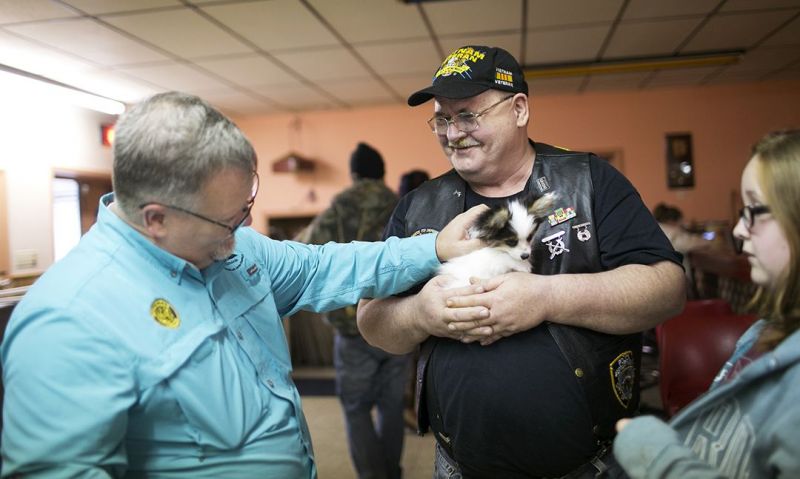
The House approved a bill that would allow the VA to connect veterans with service dogs at no cost.
A bill supported by The American Legion that would allow the Department of Veterans Affairs to connect service dogs with veterans dealing with post-deployment mental health needs was approved by the House of Representatives on Feb. 5.
Currently, the VA does not fund service dogs or recognize the use of therapy service dogs as a possible method to treat veterans with mental health needs, such as post-traumatic stress disorder (PTSD). However, H.R. 4305, the Puppies Assisting Wounded Servicemembers (PAWS) for Veterans Therapy Act, would allow the VA to award grants to nonprofit organizations that would provide veterans with puppies to become therapeutic service dogs, as well as cover the cost of training the puppies.
The American Legion supports H.R. 4305, through Resolution 134, because it provides an alternative form of treatment for veterans returning home from deployment with a traumatic brain injury and/or PTSD.
The bipartisan bill was introduced by Rep. Steve Stivers, R-Ohio, who served in Iraq with the Ohio Army National Guard.
"A soldier under my command during Operation Iraqi Freedom recently told me what his service dog means to him: he was able to fly on a plane for the first time in 10 years and he took his fiancée to dinner," Stivers said in a statement when H.R. 4305 was introduced. "That is the impact this bill can have on the lives of our veterans."
PAWS for Veterans Therapy Act would task the VA with creating a five-year pilot program to provide grants to one or more organizations to train and provide service dogs to veterans with PTSD and other post-deployment mental health issues.
The bill now goes to the Senate.
Rep. Phil Roe, R-Tenn., an American Legion member and a ranking member of the House Committee on Veterans’ Affairs, supports the PAWS for Veterans Therapy Act.
"Mental wellness does not have a one-size-fits-all solution, which is why VA must provide innovative and out-of-the-box treatments to help veterans combat these invisible illnesses and thrive in their civilian lives," Roe said to The Hill.
- Legislative

